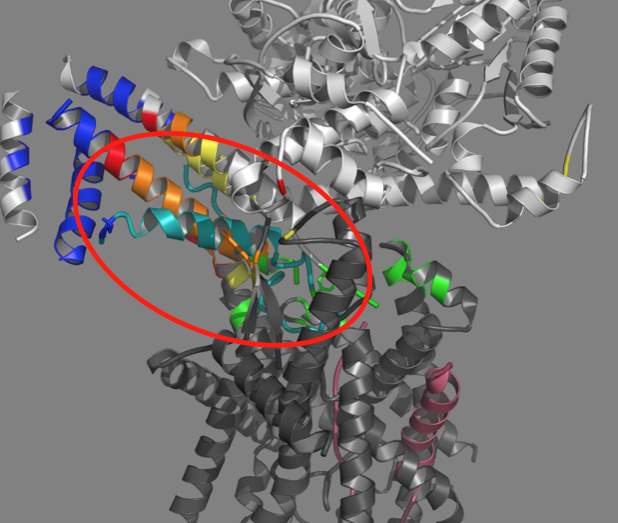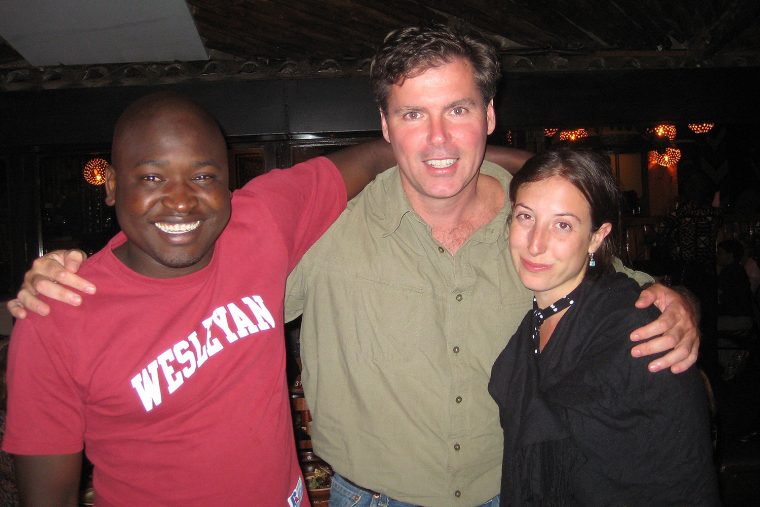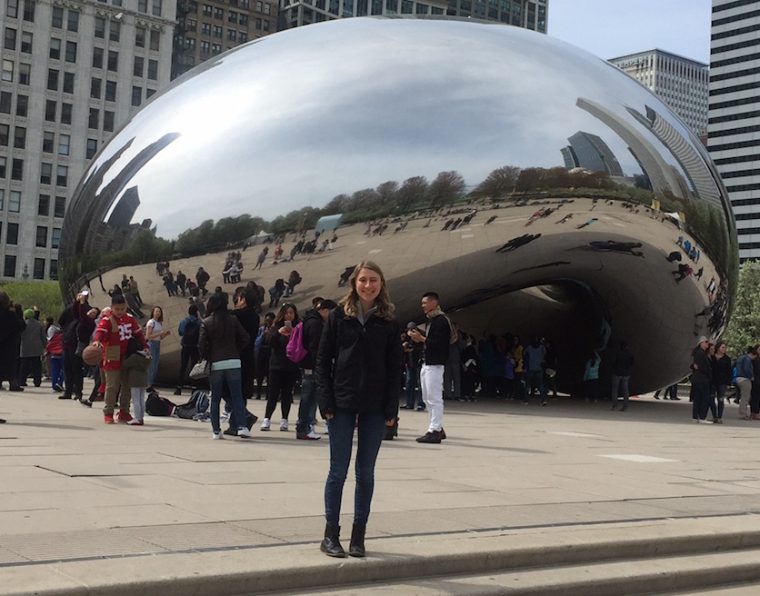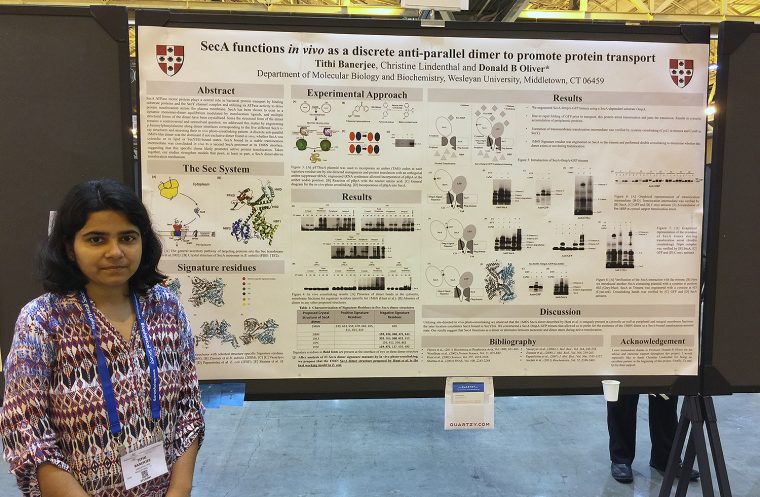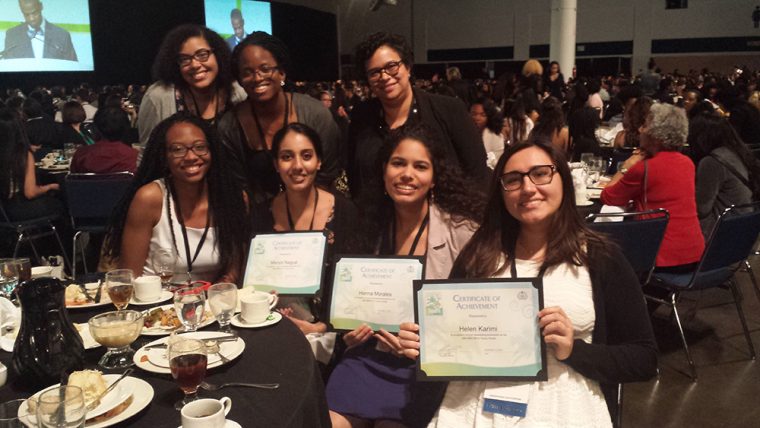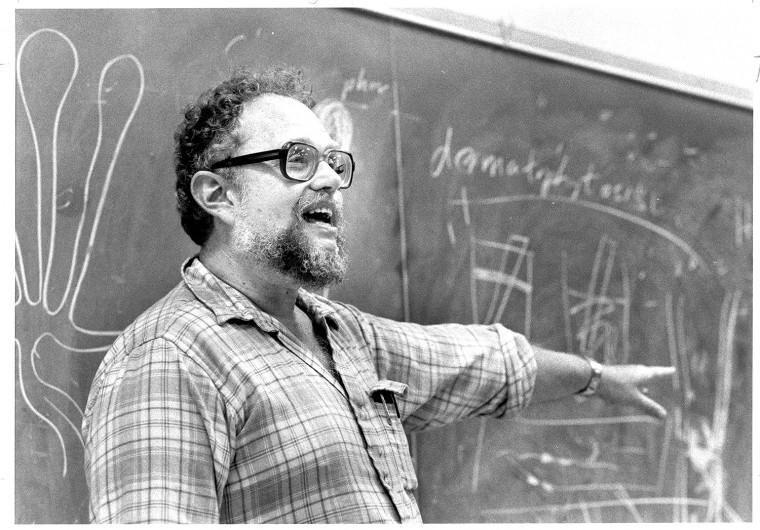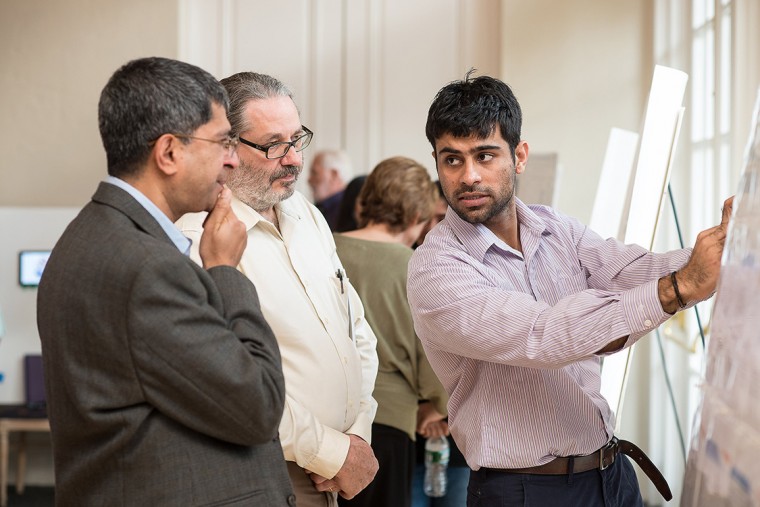All cells — bacterial or human — secrete up to 10 or 20 percent of the proteins that they make. Human secreted proteins, for example, include components of serum, hormones, growth factors that promote cell development during embryogenesis and tissue remodeling, and proteins that provide the basis for immune cell signaling during infection or when fighting cancer. The secretion process, however, isn't an easy feat for cells, as they need to move the proteins across a membrane through a channel. Transport requires the formation of a hairpin, formed by an initiator protein. In a recent study, Don Oliver, the Daniel Ayres Professor…
In March, during Wesleyan's spring break, Associate Professor of Molecular Biology and Biochemistry Michael McAlear took a trip to visit and catch up with three alumni whom he’d known when they were undergraduates, just beginning the nonprofits for which they are now known. McAlear doesn’t see them often: they live and work in Africa. All three had received Wesleyan's Christopher Brodigan Award in their senior year, for research or work in Africa. McAlear’s first stop was in Kibera, the largest slum in Kenya, and home of SHOFCO, Shining Hope for Community, the nonprofit begun by Jessica ’09 and Kennedy ’12 Odede. Linking…
Five Wesleyan seniors were inducted into the American Society for Biochemistry and Molecular Biology honor society at the ASBMB annual meeting in Chicago, April 22-26. They are: Jennifer Cascino '17, Kaileen Fei '17, Julianne Riggs '17, Rachel Savage '17 and Stacy Uchendu '17. The ASBMB Honor Society recognizes exceptional undergraduate juniors and seniors who are pursuing a degree in the molecular life sciences for their scholarly achievement, research accomplishments, and outreach activities. The mission of the society is to advance the science of biochemistry and molecular biology through organization of scientific meetings, advocacy for funding of basic research and education, support…
Wesleyan co-authors published a paper titled “The Stories Tryptophans Tell: Exploring Protein Dynamics of Heptosyltransferase I from Escherichia coli” in the January 2017 issue of Biochemistry. The co-authors include chemistry graduate student Joy Cote; alumni Zarek Siegel ’16 and Daniel Czyzyk, PhD '15; and faculty Erika Taylor, associate professor of chemistry; Ishita Mukerji, the Fisk Professor of Natural Science, professor of molecular biology and biochemistry. Their paper investigates the intrinsic properties of Tryptophan amino acids found within the protein, Heptosyltransferase I, to understand the ways this protein moves during catalysis. Understanding the movement of this protein is an important step in developing…
Three Wesleyan Molecular Biology and Biochemistry majors received the unique opportunity of presenting their thesis work at the 61st annual Biophysical Society meeting in New Orleans, Feb. 11-15. (more…)
From Nov. 9-12, two faculty members and five students from the physics and chemistry departments, attended the Annual Biomedical Research Conference for Minority Students in Tampa, Fla. Candice Etson, assistant professor of physics, and Erika Taylor, associate professor of chemistry, were joined by McNair Scholars Luz Mendez ’17, Tatianna Pryce ’17, Stacy Uchendu ’17 and Hanna Morales ’17; and Wesleyan Mathematics and Science (WesMaSS) Scholar Helen Karimi ’19. Students observed other research being performed around the nation by students who are members of underrepresented groups in Science, Technology, Engineering and Mathematics (STEM). In addition, the Wesleyan students presented their own research and Morales and Karimi…
The Molecular Biophysics Program, the Department of Chemistry and the Department of Molecular Biology and Biochemistry hosted the 17th Annual Molecular Biophysics and Biological Chemistry Retreat on Sept. 29 at Wadsworth Mansion in Middletown. The event included several talks by Wesleyan faculty and two student research poster presentations. Professor Anna Pyle delivered the keynote address titled "Structural and Mechanistic Insights into RNA Splicing." Pyle is the Howard Hughes Medical Institute Investigator and the William Edward Gilbert Professor in the Departments of Molecular, Cellular and Developmental Biology and Chemistry at Yale University. Pyle studies the structure and function of large RNA molecules…
Manju Hingorani, professor of molecular biology and biochemistry, professor of integrative sciences, recently completed a two-year tenure working for the National Science Foundation's Division of Molecular and Cellular Biosciences (MCB). Hingorani served as the program director of the MCB Genetic Mechanisms program. Hingorani worked with investigator-driven proposals submitted to both the Genetic Mechanisms and the Cellular Dynamics and Function programs. As a rotating program director, Hingorani managed proposal reviews and awards and responded to inquiries from principal investigators conducting fundamental research related to the central dogma of biology. (more…)
Lisa Dierker, professor of psychology, director of pilot programs for the Center for Pedagogical Innovation, and Ishita Mukerji, the Fisk Professor of Natural Science, professor of molecular biology and biochemistry, professor of integrative sciences, were both honored at the 12th annual Women of Innovation Awards. Presented by the Connecticut Technology Council, the awards celebrate the energy, creativity and success of women and students from Connecticut's science and technology community. Both professors were honored in the category of Academic Innovation and Leadership. The celebration was held April 6 in Plantsville, Conn. Dierker was honored for her work developing a curriculum to introduce students to…
Six Wesleyan students were inducted into the American Society for Biochemistry and Molecular Biology (ASBMB) honor society this year. Helena Awad '16, Noah Hamlish '16, Selin Kutlu '16, Melanie Parziale '16, Julianne Riggs '17, and Zarek Siegel '16 were honored with this prestigious award for exceptional work in biochemistry and molecular biology. The ASBMB Honor Society recognizes exceptional undergraduate juniors and seniors who are pursuing a degree in the molecular life sciences for their scholarly achievement, research accomplishments, and outreach activities. The mission of the society is to advance the science of biochemistry and molecular biology through organization of scientific meetings, advocacy for…
William "Bill" Firshein, the Daniel Ayres Professor of Biology, emeritus, died Dec. 7 at the age of 85. Firshein arrived at Wesleyan in 1958 after receiving his BS from Brooklyn College and his MS and PhD from Rutgers University. He taught at Wesleyan for 47 years before retiring in 2005. Firshein was an active scholar who was awarded research grants totaling more than $2 million over his career. He investigated the molecular biology of DNA replication cell division in Bacillus subtilis and Escherichia coli and their plasmids. In his most recent book, The Infectious Microbe, published by Oxford University Press…
The Molecular Biophysics Program hosted its 16th annual retreat Oct. 22 at Wadsworth Mansion in Middletown. The day-long event included two poster sessions and talks by three Wesleyan faculty and two guests. The event also allowed students and faculty to discuss their current research. Rich Olson, assistant professor of molecular biology and biochemistry, delivered a talk on “Understanding membrane specificity in a family of bacterial pore-forming toxins.” Joseph Coolon, assistant professor of biology, spoke on “The role of gene regulatory network structure in genome evolution.” Candice Etson, assistant professor of physics, spoke on “A Single-molecule Toolkit: Using TIRF Microscopy to…


